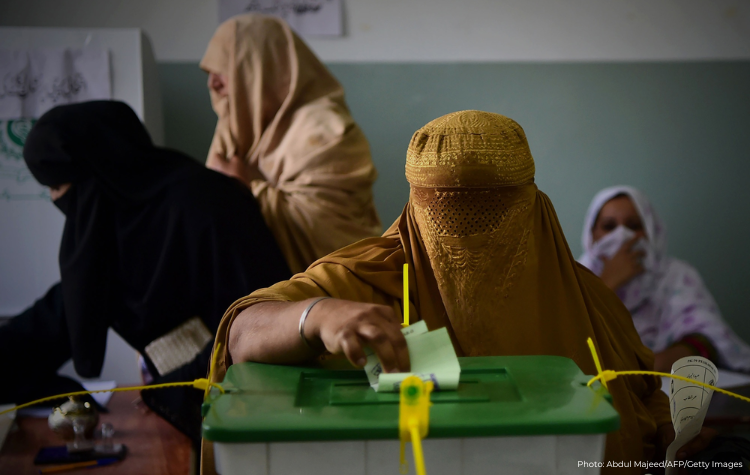(Bangkok/Kathmandu, 7 February 2024) – As Pakistan–a nation of nearly 250 million people–gears up for its general elections on 8 February 2024, the Asian Forum for Human Rights and Development (FORUM-ASIA) underscores the importance of fair and free elections as part of a country’s democratic process.
Pakistan’s 2024 electoral landscape is marked by various challenges, including a crackdown on the opposition led by former Prime Minister Imran Khan’s party, the Pakistan Tehreek-e-Insafe (PTI). In addition, Pakistan is facing an economic crisis characterised by a weakened currency and soaring inflation at 30 per cent.
Electoral violence, intimidation, and internet disruptions
Despite a nationwide Gallup survey indicating Khan’s popularity, PTI candidates have faced detention, home raids, and intimidation of their relatives since his ousting by the parliament in 2022. Stripped of their electoral symbol, the cricket bat, PTI candidates are now compelled to contest as independents. The party faced persistent campaigning hurdles, with censorship affecting their media coverage. Internet and social media blackouts disrupted their live streams and fundraising efforts.
Khan was sentenced to 10 and 14 years in prison on charges of leaking state secrets and corruption, respectively. In a controversial case targeting his marriage with Bushra Bibi, Khan and his wife were sentenced to a 7-year jail term. Women’s rights groups in Pakistan perceive this verdict as a dangerous precedent, constituting an assault on women’s autonomy over their bodies, dignity, and privacy. With these three convictions, Khan is ineligible to hold public office for the next 10 years.
The looming spectre of electoral violence is evident through attacks on police stations by armed groups, targeted killings of political candidates and their aides, and escalating violence in Balochistan and Khyber Pakhtunkhwa. These incidents significantly erode the integrity of the electoral process.
In the lead-up to elections, Pakistan has already witnessed recurrent social media and internet disruptions, with more outages anticipated, particularly in sensitive areas. Such interruptions may disproportionately impact independent candidates with limited resources who rely on social media campaigns.
These shutdowns violate people’s freedom of expression and right to access information, setting a wrong precedent.
Call to action
FORUM-ASIA affirms that free and fair elections are the cornerstone of democracy. Democratic legitimacy, however, goes beyond the act of holding elections and voting. It also necessitates unrestricted access to information, freedom of expression, association, and peaceful assembly.
A level playing field for all political parties and the active engagement of civil society organisations are crucial for a legitimate electoral process.
FORUM-ASIA urges the caretaker government, the Election Commission, and law enforcement agencies to uphold international human rights standards, ensure equitable media access, act impartially, and commit to democratic principles. To genuinely reflect the will of the people of Pakistan, we urge all actors to prioritise human rights and fairness during the 2024 elections.
About FORUM-ASIA:
The Asian Forum for Human Rights and Development (FORUM-ASIA) is a network of 85 member organisations across 23 countries, mainly in Asia. Founded in 1991, FORUM-ASIA works to strengthen movements for human rights and sustainable development through research, advocacy, capacity development and solidarity actions in Asia and beyond. It has consultative status with the United Nations Economic and Social Council, and consultative relationship with the ASEAN Intergovernmental Commission on Human Rights. The FORUM-ASIA Secretariat is based in Bangkok, with offices in Jakarta, Geneva and Kathmandu. www.forum-asia.org
For media inquiries, please contact:
- Communication and Media Programme, FORUM-ASIA, [email protected]
For the PDF version of this statement, click here




